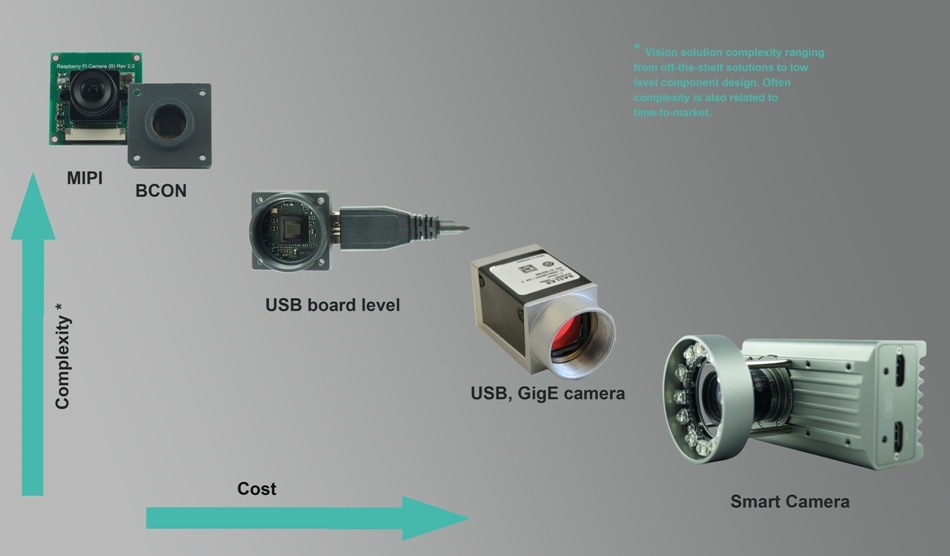MIPI CSI-2 is already a very important interface for mobile devices such as smart phones or tablets. But what role does MIPI play in Embedded Vision?

What is Embedded Vision?
To answer the question of the importance of MIPI for image processing, we have to ask, what is Embedded Vision?
The term Embedded Vision means basically, that the image processing is carried out on-board of a device. This can be executed in different formats and technologies, but the general idea is to embed a solution, so that it runs as efficient as possible, in a compact format and usually on processors based on ARM or x86 architecture. The achieved “result” is often the only one, that the system extradites and therefore minimalizes the data to a user oriented band width and presents only the necessary core information.
Previously, in the traditional Machine Vision Industry, vision systems such as smart cameras or fanless PC’s were referred to as “embedded”. But nowadays, it mainly refers to board level designs, which are associated with a multitude of image processing applications and deliver compact and specific solutions.
EyeVision – the MIPI Software
Also the MIPI interface, which is featured on many boards these days and a lot of camera sensors are now designed for MIPI. The EyeVision software supports MIPI sensors by Allied Vision Technology, Basler, Vision Components and of course Raspberry Pi. Additionally, the EyeVision software runs on boards such as e.g. NVIDIA, HiKey, HummingBoard, Rock960, DragonBoard, Auvidea, etc.
MIPI on the advance for industrial image processing
Due to the increasing growth of the mobile market, more and more mobile processors are produced. At the same time the competition is strong and leads to more and more efficient processors in a short time period. Even low priced, simple processors often feature more than two MIPI CSI-2 interfaces on a chip. Many producers have discovered the image processing industry as an interesting market and now offer products in smaller quantities and with long term availability for industrial applications.
Also typical industrial embedded processors such as e.g. NVIDIA are equipped with MIPI CSI-2. This means, that a new camera interface was inevitable. Besides the low cost processors, there are several other reasons why the cost per unit are decreasing even further. The developers can chose now from an abundance of processors for the optimal system suitable for their application.
EyeVision – MIPI support
But as the integration of a respective camera module is time-consuming, EVT has made the EyeVision software compatible with MIPI. Not only does EyeVision support a multitude of processors, but with that MIPI cameras by diverse makers.
Source: http://www.evt-web.com